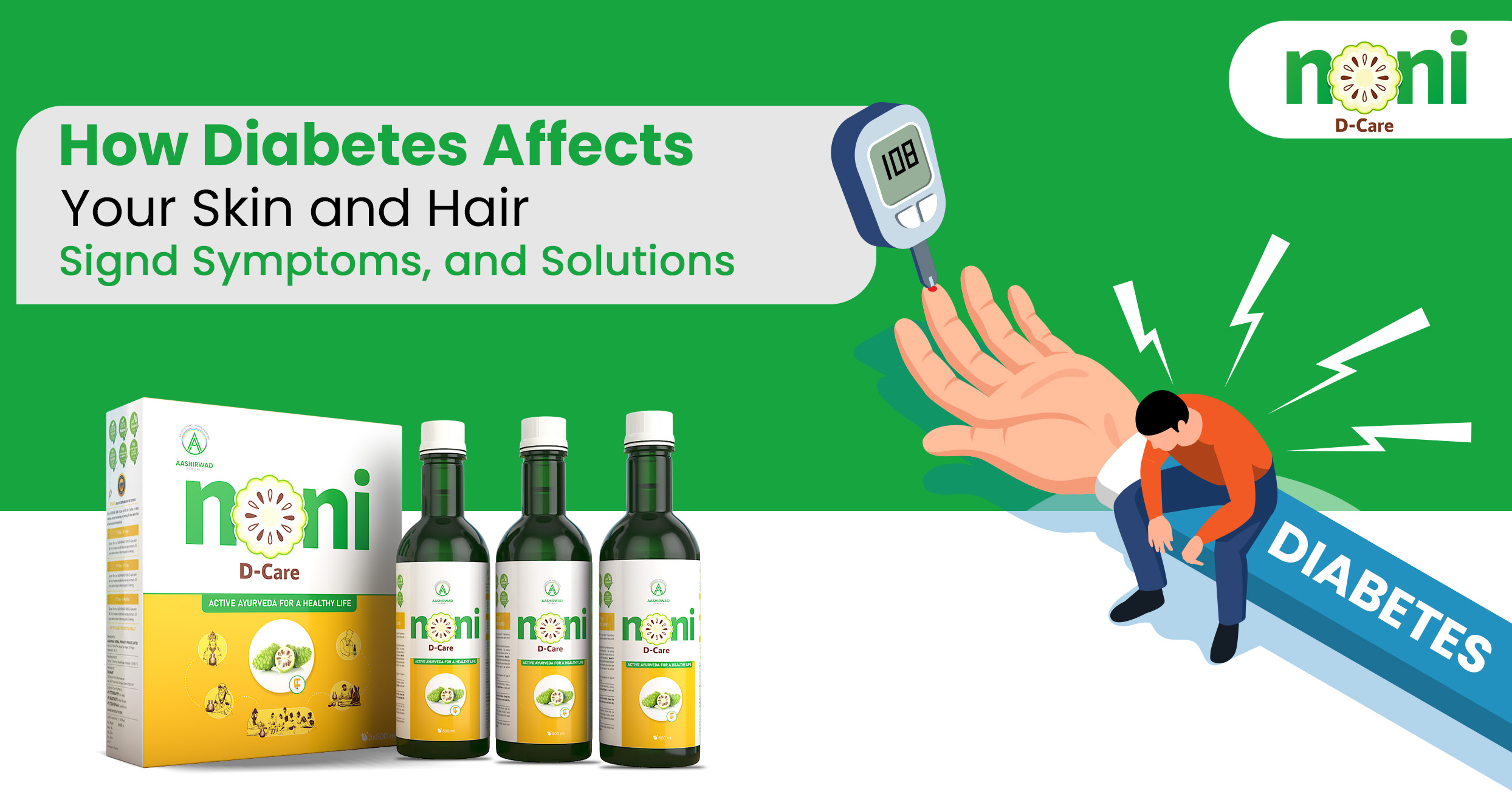How Diabetes Affects Your Skin and Hair: Signs, Symptoms, and Solutions

Diabetes is a metabolic disorder that has not only affected millions till now but is refusing to stop affecting more. While most people know that it impacts blood sugar levels, fewer know that diabetes may also significantly affect the skin and hair health. Being familiar with these effects is not only vital for early diagnosis but also for managing diabetes well.
Effects of Diabetes on Skin and Hair: What You Should Know
According to the American Diabetes Association, every part of your body gets affected by diabetes, including the integumentary system, which consists of skin, hair, and nails. Some of the issues are mild cosmetic issues, but some are of real concern. The early signs and symptoms of diabetes can include fatigue, excessive thirst, frequent urination, and slow-healing wounds. However, dermatological and hair-related issues are often ignored despite being scientifically proven signs of the disease.
Skin Problems Linked to Diabetes
Diabetes can cause a variety of skin issues, and people with high blood sugar levels are prone to infections, particularly fungal and bacterial infections. Fungal infections can result in itchy rashes in skin folds, especially in the moist areas of the body.
Microbial infections, such as sores, infections around the nails and hair follicles, are usual among diabetes patients. Yeast infection, dehydrated skin, or reduced blood flow may cause skin itching.
Other skin problems include diabetic dermopathy with brown patches, especially on the shins. High blood sugars lead to loss of fluids, making the skin dry and flaky. These skin signs are not just cosmetic issues but serious signs that demand thorough evaluation and possibly a medical diagnosis.
Proper skin care and managing diabetes through blood sugar control are key to preventing such side effects.
Hair Loss and Diabetes
Hair loss in people with diabetes can be due to various factors, including hormonal imbalances, high sugar levels, poor blood circulation, and stress. Poor blood circulation in hair follicles deprives them of essential nutrients, causing thinning and hair fall. Stress is a common factor that leads to various diseases, triggering hair loss. People with type 1 diabetes are at a greater risk of alopecia areata, an autoimmune condition that causes patchy hair loss.
Medications have their side effects, and hair loss is one of them. High blood pressure medications
Diet and Nutritional Management
A major aspect of managing diabetes and its effect on skin and hair involves a balanced diet and nutrition. A diabetic diet that has the best food for diabetes control is essential. Foods that are rich in antioxidants and fiber and low on the glycemic index assist in controlling blood sugar levels, and in turn, support skin and hair health.
Ayurvedic herbs for diabetes and noni fruit extract (Morinda citrifolia) have now gained popularity in managing diabetes. Noni fruit juice has antioxidant, antibacterial, and anti-inflammatory properties, which may support immune function and improve skin and hair texture. Though more clinical trials are needed, some initial studies show promising results in the role of noni juice in managing diabetes and improving collagen levels in the skin.
Noni D-Care: An Herbal Approach to Diabetes Management
Noni fruit extract, which is rich in antioxidants and has anti-bacterial and anti-fungal properties, together with powerful ayurvedic herbs such as Saptarangi, Nirgundi, and Shilajit, makes Noni D-Care an effective diabetes control remedy.
Diabetes is known to cause significant weakness and fatigue. Noni D-Care improves strength and boosts immunity, making the body stand against the side effects of diabetes.
Noni D-Care strengthens vital organs, manages blood pressure, regulates hormone imbalance, and controls neurological problems. This herbal medicine for diabetes stimulates metabolism and enhances digestive health. It also serves as a heart health tonic.
Hope for the Future: Is There a Cure?
While there is no complete cure for diabetes yet, advancements in medical science are paving the way. However, managing diabetes through lifestyle changes, medication, and regular monitoring remains the most effective approach.
The integration of natural supplements like noni fruit extract and ayurvedic herbs into daily routines is gaining popularity. Ayurvedic remedies for diabetes, such as Noni D-Care and Noni Diaba Care, are effective not only in diabetes control but also in overall health management. These are often considered complementary strategies and should be used under medical supervision.
Conclusion
The impact of diabetes doesn’t stop at an imbalance of blood sugar levels, but also goes beyond affecting skin and hair health. Proper diagnosis, medical evaluation, and following science-backed strategies, including ayurvedic remedies, help reduce the bad effects of diabetes.
A balanced diet, controlling blood pressure, and including natural supplements like noni fruit juice may offer additional support. Understanding the signs and symptoms of diabetes and taking proactive measures not only improves quality of life but also reduces the risk of complications in later life.
References:
https://www.healthline.com/health/type-2-diabetes/skin-problems#causes
https://type1better.com/en/can-type-1-diabetes-trigger-hair-loss/
